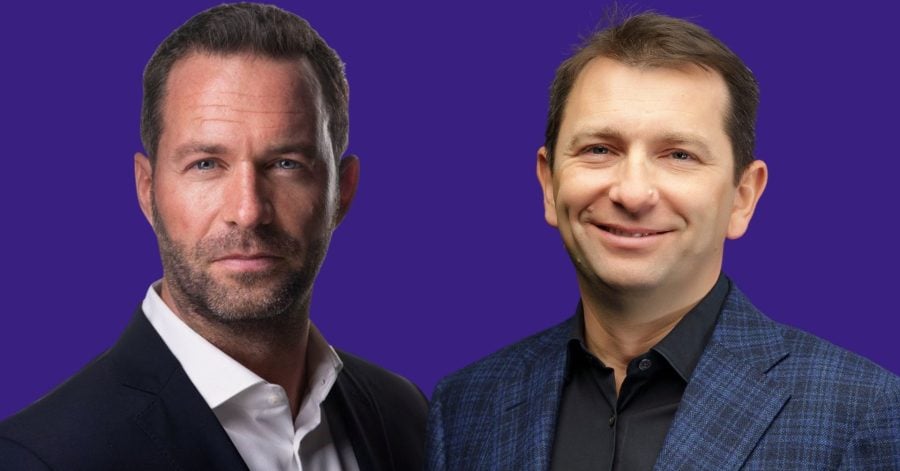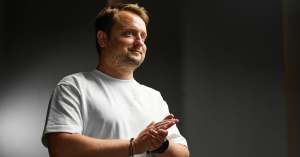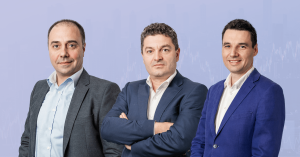Until the end of 2024, 20 companies at a pre-IPO stage can access €25M to grow their business before launching on the Bucharest Stock Exchange market (BVB). They can begin their scaling journey with the stock market AeRO, the Alternative Exchange market dedicated to SMEs and startups, and target the main one.
But these companies will not face uncharted territories alone. They will be joined by Agista, the Romanian investment fund targeting the development of local companies through the stock exchange market, which will act as an anchor investor.
Agista is Impetum Group’s third investment fund. It aims to develop the Romanian stock exchange market, as well as build trust in new companies. The fund will benefit from Impetum Group’s community and a team of over 100 specialists in different fields.
Agista is set on analyzing over 150 companies before choosing 20 to invest in and support their growth. The team is looking for companies with a fiscal value between €3M-€15M per year. The funding ticket will be between €500K-€2.5M and will allow Agista to become an active partner for entrepreneurs growing their businesses.
About the Impetum Group
The Impetum Group’s company history begins over two decades ago when it started building the biggest insolvency plan in Romania under the name CITR. In 2017, the team realized that insolvency is a narrow niche and grew their mission to also incorporate investments.
In 2018, ROCA Investments was launched, the private equity fund in the group’s portfolio of investments. ROCA X followed a year later to build upon the ecosystem created around the group by targeting tech startups.
The Recursive met with Andrei Cionca, co-founder and CEO of the Impetum Group, and Nicolae Kovacs, CEO of Agista, to discuss the launch of the fund as well as its goals for the next two years.
The Recursive: Why did you choose this particular year to launch Agista?
Andrei Cionca, Impetum Group: Two years into the pandemic, even if it’s not the best moment in the market, we decided to launch Agista to help Romania’s stock exchange market and companies develop. We want to bring capital into this market and gather companies to invest in one year before they list on the stock exchange market.
We saw development on the Romanian Stock Exchange as there have been 27 companies listed in the last year. At this moment in the development of the Romanian Stock Exchange market, it needs an institutional player that can solve two main problems:
- The liquidity issue: we saw a lot of companies that don’t have enough liquidity to attract bigger investors;
- The high volatility: we think that if an institutional player will invest in young companies, we will help them reduce the level of volatility in their evolution on the stock exchange.
What is a priority in the development of Agista in 2022?
Nicolae Kovacs, Agista: Our goal is to invest in up to 10 companies in a pre-IPO stage, which means unlisted companies, those that want to take this step sometime in the future, but we are open to investing in companies that are already listed on the stock exchange as well.
We also want to create more trust. Ultimately, what attracts people to invest in companies and capital markets is the element of trust.
Currently, there are over €33.5B sitting in deposits in banks, which are generating little interest, but a negative return due to the high inflation rate. If only 1% of that per year would come into the remaining capital markets, it would make a huge difference.
What we aim to do is create an accelerator for smaller companies. We believe in SMEs because they have a huge potential. We want to contribute where we see value to be created, invest in over 20 companies in the next two years, and help develop the stock market.
In what types of businesses and verticals are you looking to invest?
NK: We are interested in everything that is high growth and connected to today’s market. The market is mainly focused on a few sectors that create high growth due to the presence of funds, be it sustainability, agriculture, or healthcare. Everything that is up and running can be scaled.
When looking at the companies, they have to have three elements:
- a product;
- a healthy market;
- a scaling capacity.
What we are aiming for these companies is to grow fast in a couple of years. Some companies need to grow a bit more to be robust enough for the stock market, and after that have them listed on the stock market AeRO.
Our ultimate goal is to have as many companies as we can be listed on the main market.
Are you looking actively at solutions in the market or are you waiting for solutions to find you?
NK: In the beginning, we will be looking more for businesses than these will be looking for us. But we do have “the third child’s advantage” if you will, and that is that the group is already well known.
There’s a lot of influx of intelligence coming from the market, a lot of inflow of teachers and businesses, and we are grateful for that. At the same time, we are developing our net. So, it’s a hybrid between the two.
What is the goal of the Agista Accelerator?
NK: The accelerator is both a business generator and an education generator. At Impetum Group, we want to have companies understand from a young age how to do things better in the main areas of development, HR financing, corporate structure, and all those to get into the position where they are scalable.
Many companies develop and they hit a certain ceiling after a while that they cannot overcome. Education is something that we are aiming for to try and to teach people a proper way of doing things, show them a pathway to success.
Can you share with us more details about the Accelerator?
NK: We are looking to launch somewhere in the fall. This is a tool that also addresses the main market. Accelerators are usually focused on the tech market, and specifically, startups, which is nice, but we are trying to have something focused on the main market as well.
How can the AeRO market be more attractive for tech startups?
NK: The AeRO market, which last year raised a total of €56M for entrepreneurs, it’s in continuous development and we think that it’s a good pathway to the domain exchange. Everyone wants to get to the main exchange, but they have to graduate from AeRO. It’s a good pathway to the capital.
I wouldn’t say it is for startups. You need to have a certain track record to be able to be listed over there. Like with any capital market, it is mainly based on the quality of the company and the management you have, your plans, and what you can deliver.
Now, as there is not so much red tape around it, as it is in the bigger markets, it is easier to get in there and get financed, although it works exactly like main capital markets. Out of the last 27 companies listed, only a couple of them are on the main exchange.
The return in the last two years has been good, around 85%. But if you look at it closely, you can see that half of them are negative and a third of them are delivering between zero and 15% returns, which means the actual main returns are being delivered only by two-three bigger companies.
So, although there are a lot of advantages about being listed on the market, which can be anywhere from financing to HR, the stress test can be quite harsh. What we are aiming for here is to be a stabilizing factor, an institutional investor that helps companies build a reputation, while also contributing to the market’s maturity.
In what development stage should companies be in if they opt to raise money on the stock exchange?
NK: Companies usually go to the stock exchange when they need to raise capital to grow. What I wouldn’t advise is going to the capital markets for the wrong reasons or without being prepared for it.
This means having a proper financial structure, know-how, an institutional investor or an anchor investor that presents stability in the company, and the right management structure. Many things go into this, like having plans and delivering on the promises the company has made.
After the war, the market went down around 25%, then it went back up, there was a lot of fluctuation. This isn’t happening in huge volumes, only a few scared folks trade and then that creates this snowball effect. The players react harshly to the market going down as individual investors can be emotional at times.
What should entrepreneurs know before they opt for an IPO on the stock market AeRO?
NK: Romanian entrepreneurs have a tough time letting go of control. But by listing, you are not giving up the control, you are going out there to help yourself to be better financed, more transparent, and create more value.
Our studies show that close to 60% of Romanian entrepreneurs know little about the stock market. Their main problem with it is this “oh my God, they are going to know everything about me and they are going to control my company”.
What I can say to the remaining entrepreneurs is that for them to take their business to the next level, they need to go out there and have the courage to try out the market because it gives them a great advantage.
We don’t want to take over. We are looking for those companies that understand our added value, which is we have finance coming in for them. We have a team of 100+ professionals, experts in various disciplines and therefore we have gone through all the hoops in all kinds of companies, whether those are in distress, or fast-growing, and we understand what they need to succeed. We are there to help and to be a partner.
AC: Romanian SMEs are undercapitalized. My advice to young entrepreneurs would be to be aware of this limit. It’s a bit of education, in the end, to become part of the solution and not of the problem.
They have to get exposed to the market, start communicating, sharing experiences, asking questions, and try not to keep their companies within their limits.







